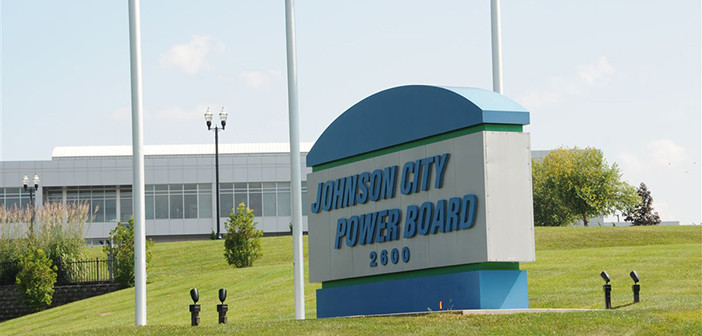By Jeff Keeling
Johnson City Power Board (JCPB) leaders say changes in their industry have created a need for more flexibility, and the JCPB will seek a change in state law this year that would allow it to operate as an authority.
Should that request be successful, the JCPB’s board and the Johnson City Commission would have to approve the change to authority status. JCPB CEO Jeff Dykes said the change in status – which would put JCPB in company with Jackson’s municipal authority and a couple of others in the state – could be implemented within a year or two.
Dykes called the potential change, “something that I think long-term and short-term, will be very beneficial to our customers in relation to maintaining stable rates, and also opening opportunities for us to do things that will open up other aspects that our customers and consumers can be participants in.”
Last Thursday, Johnson City Commissioners unanimously endorsed the JCPB’s seeking the enabling legislation, which is required because Johnson City is a “home rule” city. That move came three nights after commissioners heard a lengthy presentation from JCPB board and administrative leaders outlining the rationale behind the request.
Changes ranging from “time of use” and “peak” billing and lower customer power use due to energy efficiency, to renewable energy mandates and new energy storage technologies, among others, are turning longstanding power distribution models on their head. One result, JCPB Chairman Scotty Bowman shared, has been a constriction of margins and general challenges to JCPB’s financial position.
While JCPB’s finances remain strong, a continuance of trends that have been in place for several years threatens to erode that status. “Red flag” charts included one showing kilowatt sales failing to keep pace with customer growth (lower usage rates); another showing power costs (from TVA) increasing steadily while JCPB sales to customers have been flat to declining; and a third showing net income declining steadily since 2011, with consecutive 10-year lows in 2014 and again in 2015.
The presentation claimed that continuing business as usual would likely result in persistent, continuous rate hikes and eventual merger or acquisition by another entity. It also warned of the depreciation in city-owned assets that could bring, and the decrease in city revenues from the JCPB in the form of in-lieu-of-tax payments. Those payments currently total about $3.6 million annually.
Even with authority status, JCPB would remain under significant oversight, both from the Tennessee Valley Authority and the city, which would retain control of any disposition of JCPB assets, but would no longer carry them on its books. JCPB, Dykes said, could more effectively enter joint ventures and other business arrangements that can help mitigate the changes in the marketplace. JCPB also could acquire smaller distributors to gain economies of scale.
“The industry is changing rapidly with technology and alternative energy sources out there, and this is an opportunity for us to be a participant in those alternative energy sources, and actually by us being a participant, allowing our customers to also be a participant … through public-private partnerships.”
As an example, he mentioned the possibility of a “solar community” that could involve a private third-party and ratepayers who wanted to invest in solar but may not have the means to put an array on their own homes – or, perhaps, the best locations for good production.
“Our current structure would not allow me to do a public-private partnership with a company that could come in and we could do a joint venture, working with the TVA and the third party for our customers that were wanting to be involved in solar … they could be an active participant in that and have a share of that installation.”
Dykes, who said a joint alternative energy venture “would be an early thing we’d do,” noted that the JCPB system includes 73 private solar installations and that a major industrial customer will soon add solar capacity. Those are among hits to the bottom line showing the need for a new model, he said.
“There’s a lot of companies out there that did not make changes when they saw changes coming in the marketplace. This is an opportunity for us, while still governed by the city, to adjust our corporate structure in a way that will allow us to grow and become an even better value for our customers.”
Dykes said the JCPB is preparing additional information for city leaders to answer about a dozen questions they had last week, while it works toward the law change. It would become the first such authority in Northeast Tennessee.




